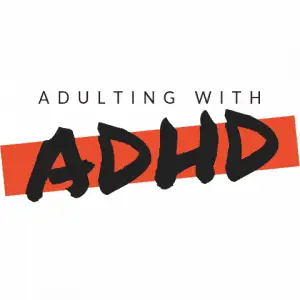
Content provided in association with BetterHelp.
Can EMDR Help ADHD?
EMDR (eye movement desensitization and reprocessing) is a form of therapy that helps patients heal from disturbing life experiences. Much like the body can heal from physical trauma, practitioners of EMDR maintain that the brain can heal from psychological trauma. Because researchers are exploring the relationship between ADHD and childhood trauma, you may wonder if EMDR can help ADHD.
I can only speak from personal experience, but I will say this: It is my belief that by alleviating my depression and anxiety through EMDR, my cognitive function has improved. However, at this time I still view my experience with ADHD as a separate issue.
It’s possible that if you have ADHD and psychological trauma that EMDR will help you as a whole. Whether EMDR can be used as a specific intervention for ADHD isn’t something I found when I researched this. If you’re wondering if EMDR could be a solution for you, I recommend talking to a therapist you trust. If you don’t have one or if the idea of finding one feels too daunting, you may consider trying an online service such as BetterHelp.
Related: How To Pick The Right Therapist
How I Got Into EMDR
My hypnotherapist first recommended EMDR a couple of years ago, when I was seeing her for anxiety while I was pregnant (and was unable to take my anxiety medication). It sounded so far out to me at the time that I just couldn’t get there.
Meanwhile, I’ve had a lot of life happened in the past three years and I have been struggling. So I decided to give it another shot. I didn’t really know what to expect, and even as I’m nearing the end of my EMDR I’m still nor sure I have a firm grasp of what or how any of this works (something I’ve said a few times while in my sessions).
So, while I can’t explain it I can say this – it’s working. I’ve heard it doesn’t work for everyone, but it’s working for me in some pretty profound ways. Why did I finally decide to give it a try? Pain. I was in so much time and while time and money were in both supply, I finally was ready to open my mind to the possibilities.
How My Sessions Worked
My first appointment was like an assessment and there were a lot of questions that were asked. The therapist was just basically taking an inventory of what I was all about. I came by a referral from my other therapists who been seen for like a decade, and so she basically received some background information on me beforehand.
As an aside, my therapist, hypnotherapist and EMDR therapist all share an office together. So at this point, I’ve basically got an entire Board of Directors for all my mental health needs. It truly took a village to raise me up.
After the inventory, she started asking a lot about my feelings. Feelings of shame, guilt and feeling like a burden were the most prominent feelings in the beginning. Later they would be stuff like not mattering or not feeling like I was enough. Once one of these feelings was identified, I was asked to think back to my first memory of feeling that way. I then was asked to focus on that feeling while my therapist moved two pointed fingers in a left to right motion. I would breathe, assess where I felt, then rinsed and repeated. A lot of times I would feel woozy all over my body (something I could only describe as “swirly). Presumably this was the feeling of processing the memories.
My Results With EMDR
After the first few sessions, I already started feeling lighter. Certain things would normally have bothered me with didn’t really bother me like before. I was able to get over things quicker and not dwell. I was getting better, not overreacting about things or assuming the worst about people and circumstances. These were all these things I had been working on cognitively for more than 10 years, but my body wasn’t feeling in its core. And so now I have the cognitive understanding matched with actually believing it in my core.
It was like peeling an onion, but in reverse. The first few layers were the hardest, then several started flying off. We were processing out all kinds of stuff in chronological order, starting from my childhood and working to the present.
The part that bothered me the most was that there wasn’t a finite succession in which this process works. I wanted a roadmap. I wanted exact how many appointments this was going to take, but that’s not how it works. And it’s funny because I work in tech and I often get clients wanting these very finite answers that I can’t give them. And here I was doing the same thing – I was desperate for this thing to be done already. The work was taking its toll on me and my wallet.
Several sessions in, I had what was a seemingly benign session. A few more layers were processed, no big deal. I wouldn’t even tell you what they were concerning. I don’t know how or why, but for the next two weeks I was a hot freaking mess. Just the most toxic person possible and I was miserable. I felt like every horrible thing that happened to me was detoxing out of my body. I felt nasty, I had a temper. I was throwing things out of anger and there were not enough snacks to make it stop (which I was consuming for comfort). It was a really bad times.
And then almost as suddenly as this dark period had appeared, I started feeling incredibly light and unburdened. It wasn’t a high, it was like absence of weight or the absence of being weighed down. And I’m not saying I’m magically cured.
I still have conflicts, but I am dealing with them better and getting over them quicker. They also make great data points to bring back to therapy, and we work on additional triggered feelings and process out associated memories.
Conclusion
Can EMDR help ADHD? It’s my stance that the benefits of this therapy improve cognition and by extension absolutely so improve ADHD symptoms. I always thought there was some secret ingredient to feeling this new lack of heaviness. It was mind-blowing to me that there are people who feel like this as their default setting. I became acutely aware of how much harder things were when you were carrying around fallout from a previous trauma.
In my case, childhood trauma had led me to grow up thinking I had just really shitty brain chemistry, and that’s why I act the way I did. And maybe that’s still partially true, but I now think there’s more to the story.

